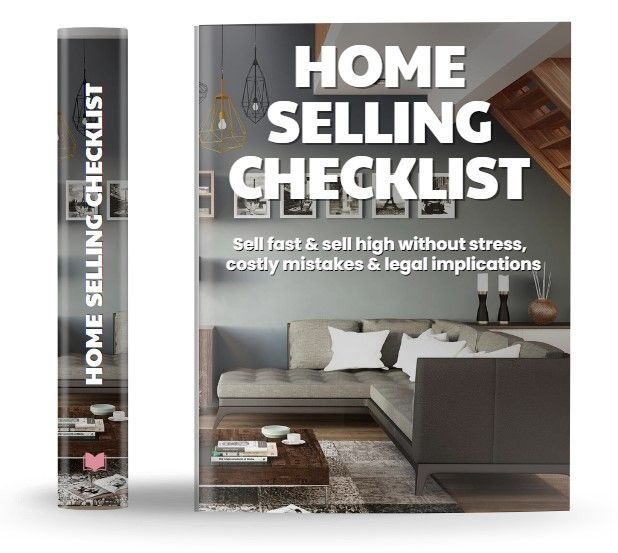You're All Set!
Scroll down to access your free guide now

HDB SELLING CHECKLIST
CONDO SELLING CHECKLIST
LIMITED TIME SPECIAL OFFER
Looking to buy or sell a property?
Apply Now To Get Expert Property Advice For FREE
Every customer is unique. That’s why we customize every one of our plans to fit your needs exactly.
Whether it’s a small strategy or a comprehensive effort, we’ll sit down with you, listen to your requests, and prepare a customized plan.
FREE TODAY (NORMALLY $580)
The Definitive Guide On How To Upsize Into A New Home
Selling your old home and buying a larger, nicer one (upsizing) can be a very exciting idea. The promise of a more comfortable home can be an intoxicating one, especially when the old one is a bit on the small side.
But if you’re seriously considering upsizing, it’s important that you’re well informed as to what the process involves. In this guide we dive into a few important things to consider before deciding to upsize into a new home.

Do You NEED To Upsize Or Do You WANT To Upsize?
Take a moment to think about why you want to upsize your home. Is it because you genuinely need more space, or is it simply because you want more space?
Sometimes, homeowners feel like their current home is too cramped, but it's not always because they lack square footage. It could be due to poor furniture arrangement or inefficient use of space.
If you're considering upsizing because you feel like your current home doesn't have enough space, take a closer look. Evaluate whether you're utilizing all your living areas efficiently.
For example, if one of your bedrooms has turned into a storage room filled with boxes and equipment, it's a clear sign that the issue lies with space management rather than the lack of space.
On the other hand, there are situations where upsizing is genuinely necessary. If you live in a one-bedroom condo and you're planning to start a family or already have a baby on the way, it's understandable that you'll need a larger home eventually.
Of course, there's nothing wrong with simply wanting to live in a bigger home. If that's what you and your family desire, go ahead and pursue it. However, it's essential to be honest with yourself and acknowledge that the reason behind your desire to upsize is primarily a want.
It's important to make this distinction because a larger and more comfortable home also comes with increased responsibilities and expenses. You'll need to invest more time and money in maintaining a bigger property.
Property taxes and utility bills will also be higher. Even if you sell your current home to finance the new one, your monthly mortgage payment could increase significantly.
So, before making the decision to upsize, carefully consider your needs versus wants, and weigh the associated costs and responsibilities.

What To Look For In A Larger Home?
Before you begin your search for a new home, it's important to have a discussion with your spouse, children, and any other family members who will be moving with you. This will help you determine the specific features and requirements you need in your new home.
Start by creating a list of these desired features, such as a larger store room or a study room. Include the number of bedrooms and bathrooms you want, as well as the approximate square footage.
Next, consider the different neighborhoods or areas in your city that you would be interested in. Is there a particular neighborhood that appeals to you because of its proximity to schools, malls, parks, and other amenities? You may also want to consider whether you're open to moving to the suburbs for better home prices or if you prefer to be closer to the bustling city center despite the higher costs.
Having a clear understanding of your needs and preferences will make the home hunting process much more efficient and effective. Make sure to communicate this information to your real estate agent. The more specific and detailed your list is, the easier it will be for them to narrow down the search and find the right property for you.
It's also important to think about your future needs realistically. For instance, if you already have one child and plan on expanding your family, you may not require more than 3 or 4 bedrooms in the long term.
By following these steps and considering your current and future needs, you'll be well-prepared to find your ideal new home.

Find a Trusted Agent
Finding a trusted and reliable real estate agent or team is crucial for a successful upsizing in Singapore. Upsizing is not a simple task, as it involves both selling your current home and buying a new one.
This process can be quite complex and requires careful timing to manage costs effectively. Without proper guidance, you may encounter numerous costly pitfalls.
A skilled real estate agent will help you navigate through the ups and downs of the process with confidence.
They can provide valuable assistance in finding suitable accommodations during the transition period or even help negotiate a rental agreement with the new homeowners, ensuring you have a place to live until you move into your new, larger home.
By having an experienced professional by your side, you can approach the upsizing process in Singapore more confidently and overcome any challenges that may arise.

Determine How Much Home You Can Afford
When it comes to upsizing your home, it can be exciting to explore different options and find the biggest and nicest property you can afford. However, it is crucial to take a step back and carefully consider your financial situation before making a decision.
Determining how much home you can afford should not solely rely on the maximum amount of financing you can obtain. It is important to avoid living "house poor," which means being in a situation where you struggle to meet your monthly mortgage payments. Such a financial strain could be exacerbated by unexpected events like economic downturns or illness, jeopardizing your ability to keep up with your mortgage.
Living house poor not only poses financial risks but also forces you to make sacrifices and compromises in your daily life. You may find it challenging to save for retirement or have to give up on enjoyable experiences like vacations. Restoring these comforts would require a significant increase in your household income.
To assess your debt repayment capacity, mortgage lenders and creditors often use the 28/36 rule. This rule suggests that no more than 28% of your gross monthly income should be allocated towards total housing expenses, and your total debt repayments (including credit cards, student loans, car loans, etc.) should not exceed 36%.
For instance, let's consider a hypothetical scenario in Singapore. If your household monthly income is $8,000, according to the 28/36 rule, your housing expenses (including your mortgage) should not exceed $2,240 per month. Additionally, your total debt repayments should not exceed $2,880.
By adhering to this rule, you can ensure that you maintain a comfortable financial position while still enjoying the benefits of upsizing your home. It is always prudent to consider your long-term financial stability and avoid overextending yourself when making such important decisions.

Should You Buy Your New Home First, Or Sell Your Old Home First?
If you have already found your dream home and are considering buying it before selling your current one, it is important to be aware of the regulations outlined in Singapore's property law.
In general, it is advisable to sell your old home before purchasing a new one. This approach allows you to have the funds from the sale readily available, make a larger downpayment on your mortgage, and avoid the burden of managing two mortgages simultaneously.
However, if you find yourself in a situation where you must buy a new home before selling your current one, there are some steps you can take to navigate the process effectively:
- Work closely with your real estate agent to obtain a comprehensive market analysis. This analysis will provide you with an estimate of what you can reasonably expect to sell your current home for. It is advisable to err on the side of caution and be conservative in your estimate.
- Take the time to study the current market conditions and evaluate how long it typically takes to sell homes similar to yours. This information will help you gauge the potential timeline for selling your current home.
- When making an offer on a new home, include a clause that allows you to list your current home for sale the day after the conditions on your offer are waived. This provision ensures that you can actively market your current home without delay.
- Opt for a 90-day closing period when finalizing the purchase of your new home. This extended timeframe provides you with adequate time to sell your current home without feeling rushed or pressured.
By following these steps and adhering to Singapore's property regulations, you can navigate the process of buying a new home before selling your current one in a manner that aligns with the local laws and practices.

Prepare Your Home To Sell
Take the opportunity to declutter your home and arrange for professional cleaning of all the interiors.
Don't procrastinate any longer, and complete all the pending handyman tasks. It is also advisable to schedule a home inspection to uncover any hidden issues.
In the event that issues are identified during the inspection, prioritize getting them resolved promptly.
Consult your real estate agent for guidance on staging your home effectively. Consider hiring a professional stager if your agent recommends it.

Be Prepared To Take Action
By this stage, you should be preparing to list your current home and have a clear idea of the type of home you desire and can afford to purchase.
Ideally, you would want your home purchase to align with the sale of your current home. This is particularly important if you intend to use the proceeds from the sale to fund your new home purchase or make a substantial down payment.
However, timing can be challenging, and there are several factors to consider, especially in the context of Singapore's property rules and regulations:
- Market Conditions: Assess the current state of the real estate market. In a seller's market, where there is high demand and limited supply, selling your home may be relatively easy and quick. However, it also means that there will be increased competition when buying a new home, potentially leading to higher prices or the need for more attractive offers.
- Contingent Offers:
A contingent offer means that your purchase of a new home is contingent upon selling your current home. There are two types of contingent offers to consider:
- If your current home is listed but does not have a buyer yet, the contingent offer would be based on finding a buyer within a specified timeframe.
- If you already have a buyer lined up for your current home and the transaction is in escrow, the contingent offer would be contingent upon the successful closure of that transaction.
- It's important to note that in a strong seller's market, non-contingent offers or more competitive offers without contingencies may have a higher chance of being accepted by sellers.
- Funds Transfer:
Negotiating two property transactions simultaneously can be challenging. For a simultaneous close, all dates must align, and it is advisable to use for both transactions to streamline the process taking into consideration the relevant fund transfer wait time within Singapore's property regulations.
- Temporary Housing: If you sell your current home before purchasing a new one, you will need to consider temporary housing options. These may include renting a short-term accommodation, staying with friends or family, negotiating a rent-back arrangement with the buyer of your current home, or staying in a hotel.
- Possessions and Storage:
Determine what will happen to your belongings during the interim period. You may choose to store them in a storage facility, keep them at a friend's place, or negotiate with a moving company to store your items temporarily.
Remember that specific rules and regulations may apply within Singapore's property market, so it is crucial to
consult with a real estate professional or legal advisor familiar with local laws to ensure compliance and make informed decisions.
In-Conclusion
Upsizing can be a very exciting process. But it also needs to be approached with caution, and with plenty of knowledge about what to expect. Be sure to consult a trusted real estate agent that can
guide you through the entire process as smoothly as possible.
LIMITED TIME SPECIAL OFFER
Looking to buy or sell a property?
Apply To Get Expert Property Advice For FREE
Every customer is unique. That’s why we customize every one of our plans to fit your needs exactly.
Whether it’s a small strategy or a comprehensive effort, we’ll sit down with you, listen to your requests, and prepare a customized plan.
FREE TODAY (NORMALLY $580)
ABOUT
Licensed in Singapore for over a decade, Caron Choo spent 15+ years mastering the art of all things real estate to give you a luxurious, results-driven real estate experience.
GETTING STARTED
CONTACT
ERA APAC Centre
450 Lorong 6 Toa Payoh
Singapore 319394
Phone +65 98329120
CARON CHOO

Real Estate Investor & Advisor
I believe every family deserves to feel confident when buying or selling their home
Phone: +65 98329120
Looking To Buy, Sell or Rent a Property?
The information contained, and the opinions expressed, in this article are not intended to be construed as investment advice. Trec, Inc. do not guarantee or warrant the accuracy or completeness of the information or opinions contained herein. Nothing herein should be construed as investment advice. You should always conduct your own research and due diligence and obtain professional advice before making any investment decision. Trec, Inc. will not be liable for any loss or damage caused by your reliance on the information or opinions contained herein.
Interested in a community-serving website like this? Email: team@trec.sg